Introduction
Jean Monnet University, also known as Saint-Étienne University, is a public comprehensive university in France, located in Saint-Étienne, a city in southeastern France.
Overview
Student size: about 20,000 students, including a certain number of foreign students.
Number of teachers: nearly 500 professors and researchers are involved in the school's scientific research and teaching work.
History
In 1960, the plan to establish Saint-Étienne University was first proposed.
On March 27, 1969, Saint-Étienne University was officially established.
In 1989, the school was renamed Saint-Étienne Jean Monnet University to commemorate Jean Monnet, the father of the European Union.
In 2003-2004, the school adopted the LMD academic system (Bachelor, Master, Doctor).
On July 23, 2008, the school became one of the 20 autonomous pilot universities selected by the French government. Since January 1, 2009, Starting from January 2020, according to the French "Excellence University Plan", the University of Saint-Etienne was fully merged into the University of Lyon and became one of the universities under the University of Lyon.
Establishment time
Officially established on March 27, 1969.
School strength
Teaching quality: As a comprehensive university, teaching covers many disciplines such as art, literature, language, humanities and social sciences, law, economics and management, sports, health, science and technology, etc., providing 276 national diplomas, which can meet the learning needs of different students and cultivate talents with solid professional knowledge and comprehensive literacy.
Scientific research level: The school has 37 laboratories, many of which are joint research units supported by large national research institutions such as the French National Center for Scientific Research (CNRS) and the National Institute of Health and Medical Research (INSERM), 350 Many teachers participate in various national or regional research projects in Europe and France, and carry out cutting-edge scientific research in multiple disciplines with remarkable scientific research results.
Nature of the institution
Public research university.
Educational philosophy
Emphasis on the comprehensiveness of disciplines and interdisciplinary research, focusing on cultivating students' innovation and practical abilities, and committed to combining academic research with the needs of social and economic development, providing students with an international educational environment and diversified learning experience, and cultivating professionals with global vision and social responsibility.
Key laboratories and disciplines
Key laboratories: Hubert Curien Laboratory is one of the most important research institutions of the school. It consists of about 90 researchers, professors, assistant professors, 20 engineers and administrators, and 130 doctoral students and postdoctoral researchers. It is committed to research in the fields of optics, imaging and computer science, and works closely with the school to promote the development of related disciplines.
Key disciplines:
Science, technology, engineering and health: covers a variety of disciplines from basic science to engineering technology and health science, such as telecommunications engineering, computer science, biological sciences, medicine, etc., providing students with a wide range of professional choices and opportunities for in-depth research.
Law, Economics and Management: including law, economics, management and other disciplines, it has cultivated many talents with professional qualities and practical abilities in the fields of law, economics, business management, etc., and provided important intellectual support for social and economic development.
Arts, Humanities and Social Sciences: It has a profound academic background in literature, language, history, sociology, art and other disciplines, focusing on cultivating students' humanistic qualities and social insight, and has made positive contributions to cultural inheritance and innovation, social development research and other aspects.
Faculty
The school has the following main departments and colleges:
Faculty of Literature, Art and Language: provides teaching and research in literature, language, art and other related majors.
Faculty of Social Sciences: covers disciplines such as sociology, history, geography, and political science.
Faculty of Law: cultivates legal professionals and conducts legal research.
Faculty of Economics and Management: including economics, management and other majors, focusing on cultivating professionals in the field of economics and management.
Faculty of Biology, Sports and Health: involves health-related disciplines such as biological sciences, physical education, and medicine.
Faculty of Science and Technology: conducts teaching and research in natural sciences, engineering technology and other disciplines.
Ranking
The university has no clear world ranking, but as a member of the University of Lyon, the University of Lyon ranked 110th in the world in the 2014 Global Nature Index, 148th in the world and 5th in France in the 2019 U.S. News World University Rankings, and 139th in the world and 5th in France in the 2020 U.S. News World University Rankings.
Expenses
Tuition fees at French public universities are fully borne by the state, and students only need to pay a registration fee of about 100-500 euros. In addition, the school also provides outstanding international students with an Erasmus Mundus Master's Program scholarship of 10,000 euros per person.
Campus
Campus distribution: The school has 5 The main campus is located in Treffieri in the center of Saint-Étienne, offering courses in art, language, literature, law, economics and management, humanities and the school's administrative building; the Metare campus mainly conducts teaching and research in science and sports, and also has a university technical college that offers short-term courses of two to three years; the Carnot campus is located in the north of the city, with optics and vision majors and Saint-Étienne Telecommunications Engineering School, where the Hubert Curien Laboratory is also located; the Bellevue campus has a medical school; the Roanne campus has another university technical college.
Teaching facilities: Each campus is equipped with modern teaching buildings, laboratories, libraries and other teaching facilities, providing students with a good learning environment to meet the teaching and research needs of different disciplines.
Living facilities: There are a large number of reasonably priced accommodations around the campus for students to choose from, and students can also enjoy a wealth of cultural and sports activities. There are leisure parks for mountain biking, hiking, skiing and sailing bases within 15 minutes of the school.
-
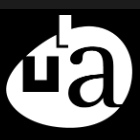
University of Angers
-
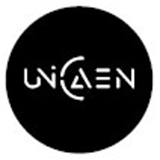
University of Caen Normandy
-

University of Bordeaux
-
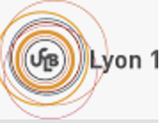
Claude Bernard University Lyon 1
-
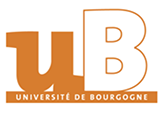
University of Burgundy
-

CY Cergy Paris University
-
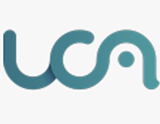
Clermont Auvergne University
-

University of Artois
-
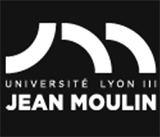
Jean Moulin University Lyon 3
-

University of Franche-Comté
-

Mesoamerican University
-

Istmo University
-

Mariano Galvez University of Guatemala
-

Regional University of Guatemala
-

Galileo University
-

Francisco Marroquín University
-

Rafael Landívar University
-

University of the Valley of Guatemala
-

University of San Carlos of Guatemala
-

Technological Institute of Tlaxcala Plateau
-

Golfo University
-

Technological University of South Sonora
-

Technological University of Huejotzingo
-

Tizimín Institute of Technology
-

Chilpancingo Institute of Technology

